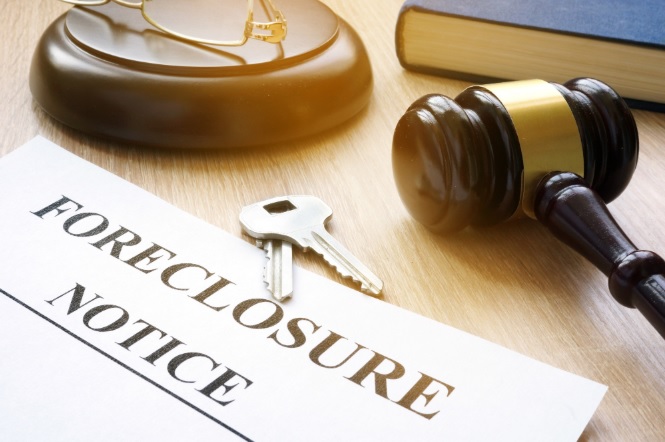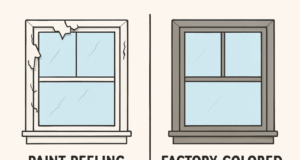Darn, here we go again.
This is probably what will ring through your mind when you decide to take the journey toward homeownership after foreclosure. The first journey is still fresh in your memory; bruising and full of financial and regulatory obstacles. So, taking the journey a second or even third time isn’t really welcome, but it’s one you want to take nonetheless.

Your situation isn’t unique. 1 out of every 200 homeowners in the U.S. will lose their property to foreclosure. Some of these people won’t give up on the dream of clear homeownership.
Here’s the good news.
Foreclosure isn’t a permanent sentence. You can shake yourself out of it and become a homeowner again. In this article, we’re telling you how to do just that.
But first off:
What Are the Consequences of Foreclosure?
Foreclosure isn’t just about losing your home to a lender. It has other far-reaching consequences that tie strings around your emotional and financial recovery.
In addition to eviction, here are other effects of foreclosure:
- Immediate damage to your credit history
- Owing a balance if the foreclosed home sells for less than you owed
- Losing the ability to access certain types of mortgages for a certain period of them
- You could face a tax bill if the sale of the property leads to capital gains
- You could find it difficult to find jobs, especially if they involve managing finances.
With the consequences fleshed out, let’s dive into how to become a homeowner again.
Start Building Your Credit
Your credit rating will tank after foreclosure.
Although foreclosure laws vary from state to state (read this guide if your home is in Hawaii), in most cases lenders will initiate foreclosure proceedings when you default on your mortgage payments for three consecutive months. Depending on the lender, these missed payments could end up on your credit report, meaning your credit score will start dropping even before the onset of foreclosure.
But it’s not until the foreclosure if finalized that your credit suffers a massive blow. Foreclosures stay on a credit report for seven years. Within this period, every lender you want to borrow from will know your history.
That said, don’t wait until the foreclosure drops out of your report to start building your credit. Do what you can now, such as paying your other bills on time and maintaining a low credit utilization ratio. It’s possible that your score will gradually rise even with a foreclosure on your report.
By the time seven years lapse and the foreclosure is deleted from your report, you could find that you already have decent credit. You’ll be more motivated to keep building it.
You Can Qualify for Another Mortgage
Going through a foreclosure doesn’t mean you won’t qualify for another mortgage in the future. At most, you should qualify for another home loan seven years after the date when you first missed the payment that led up to the foreclosure status.
However, not all mortgages have this seven-year rule, and the circumstances of your foreclosure can shorten this period.
For example, if you were foreclosed upon due to circumstances beyond your control, such as sudden job loss or heavy medical bills, you can qualify for a conventional Fannie Mae mortgage after three years, as long as you meet other eligibility requirements.
FHA loans have more lenient eligibility requirements after foreclosure. Three years is the maximum amount of time you have to wait. What’s more, if you can prove that the circumstances of your foreclosure were beyond your control, you can be eligible for a mortgage after one year.
This is yet another reason why it’s important to focus on building your credit immediately after foreclosure. You don’t want to learn that you qualify for a loan three years after foreclosure, only for your credit to let you down.
A Mortgage Isn’t the Only Way to Afford a Home
Of the homeowners in the U.S., about 70 percent have an ongoing mortgage.
It’s clear most people can only afford a home through debt financing, but this isn’t the only way. There are some who pay for homes in cash.
Sure, affording a home in cash after foreclosure doesn’t seem viable, but you can pull it off – if you’re determined enough.
First, focus on increasing your income. You can take on side jobs or start a business.
Second, keep your expenses low. Practicing frugal living is an effective way to increase your disposable income, most of which you can save toward buying a house.
Third, embrace the idea that you don’t have to own a home that’s similar to the foreclosed one. It’s natural to want to buy an even better home, which is a good show of triumph, but it’s not really necessary.
Putting your sights on a smaller, more affordable property could be what you need to become a homeowner again. Plus, you can always upgrade later on.
Seek Financial Counselling/Planning Service
No one was born with excellent money management skills. As such, we’re all bound to make financial mistakes as we navigate through life.
However, some financial mistakes are costlier than others. If yours led to the foreclosure of your home, now is a good time to take stock of your mistakes and learn from them.
A financial counselor or planner will help you identify and see through these mistakes. They will help you get better at managing and saving money, which is what you need to start your journey to homeownership again.
There’s a Path to Homeownership After Foreclosure
A foreclosure will deal you a harmer blow, no doubt. But things always get harder before they get easier. You can find your financial feet again after a foreclosure, and with this guide, your second journey to homeownership will be well underway.
All the best and keep reading our blog for more tips on homeownership.

















